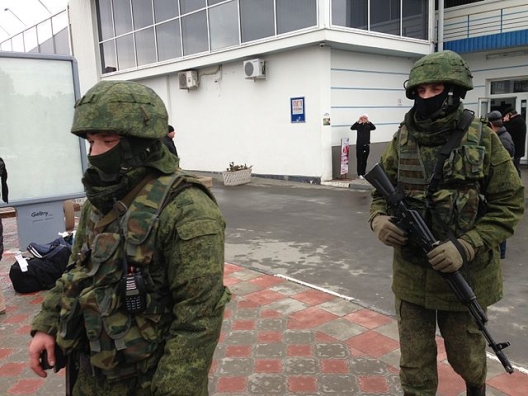 NATO countries have been reluctant to provide support to Ukraine’s military, who is not a member of the transatlantic alliance and therefore not entitled to a collective defensive response under NATO’s Article Five. This is quickly teaching an uncomfortable lesson to the nations of Eastern Europe: unless you are a member of NATO and officially protected by its Article Five guarantee, in which an attack on one member is considered an attack on all, you are on your own against Russia’s new mode of unconventional warfare.
NATO countries have been reluctant to provide support to Ukraine’s military, who is not a member of the transatlantic alliance and therefore not entitled to a collective defensive response under NATO’s Article Five. This is quickly teaching an uncomfortable lesson to the nations of Eastern Europe: unless you are a member of NATO and officially protected by its Article Five guarantee, in which an attack on one member is considered an attack on all, you are on your own against Russia’s new mode of unconventional warfare.
As NATO reinforces defenses on its own eastern border, NATO leaders and military planners must not only consider the possibility of Putin losing his mind and militarily assaulting a NATO country. NATO must also consider what happens if and when these well-armed, unmarked, SOF-like, suspiciously disciplined masked men turn up in a NATO nation, such as Estonia or Latvia (respectively 24 and 27 percent ethnic Russian) and commence another creeping invasion.
Will this be a proper trigger for an Article Five response?
Janine Davidson is senior fellow for defense policy at the Council on Foreign Relations.
Image: Unidentified gunmen at Simferopol Airport, Feb. 28, 2014 (photo: Elizabeth Arrott/VOA)

